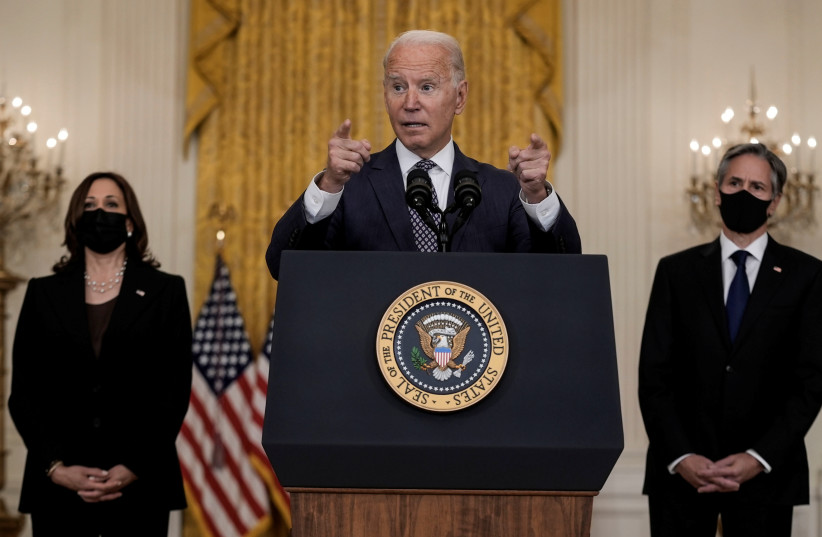In the wake of the US withdrawal from Afghanistan, the United States is now charting a new course in which it will refrain from military interventions and “nation building.”
So what are media and commentators saying in Tehran, Moscow and elsewhere? Since Iranian media tend to reflect the views of the regime, it is easy to know what Iran is thinking by reading its state-linked media such as Tasnim or Fars News.
A recent report at Tasnim news presents a two-for-one in this respect by quoting a Russian military expert in Iranian media. According to this report, a senior member of the committee on policy of the Federation Council in Russia analyzed the US decision. He compared the US ending military operations in Afghanistan with the withdrawal of the military forces of the United States from Vietnam. “The 20-year American military operation in Afghanistan was completely meaningless and fruitless.”
In this context he argued that the withdrawal from Vietnam and the collapse of South Vietnam led to the so-called Vietnam Syndrome, which he argued “deeply affected US society and caused a rift. The United States now has the ‘Afghanistan Syndrome’…. The most important feature is the loss of American faith in military power and the impact of its actions. Of course, this time, the loss of confidence in US military action is not limited to the United States and is seen around the world.”
Alexei Pushkov in Russia argued that the US has a new geopolitical calculation to make on the world stage. It is soul-searching having wasted some $2 trillion on the Afghan war. In fact, the real figure spent in Afghanistan and Iraq is estimated at between $5t. and $8t.
What does this mean? It means that Iran and Russia think they will be able to do as they please for the next few years, as the US will not want to use its military.
Other articles illustrate how the US has lost much in its withdrawal from Afghanistan. Its cultural influence and other forms of influence have been diminished.
Iran is boasting of new missile systems and military preparations.
Iran also thinks Israel has suffered a setback in various ways, including in Gaza. Iran’s Tasnim even said the Abraham Accords have not provided the benefits that Israel believed they would.
Iran and Russia have big plans. They both want to work more closely with China. Iran wants a greater role in the Shanghai Cooperation Organization, and wants more joint naval drills with China and Russia.
There is some pushback. Pakistani rebels have claimed attacks on Chinese workers in Pakistan, and there have been protests against the Chinese Belt and Road Initiative.
Israel and the US recently announced a new joint naval drill.
“During the exercise, the two navies practiced a variety of scenarios, including defense and rescue operations. The exercise saw the two navies working side by side, learning together and strengthening the connection and familiarity of the two nations’ fleets. The exercise marks the beginning of joint efforts between the Israeli Navy and the US Fifth Fleet, as part of the transitioning of IDF matters to the US Central Command. This is the first exercise of many planned to take place in the future,” an IDF statement said.
But that won’t deter Iran and its embrace of China and the assessment that it and other US adversaries have that America is gradually leaving the Middle East.
Iran intends to make great strides toward China under the new leadership in Tehran over the next five years, Iranian media say. It foresees a new era in Afghanistan and increased trade with China. Despite sanctions, it also wants to push energy exports to Afghanistan and Lebanon.
It sees new horizons in Iraq, after a major meeting in Baghdad in August that brought together Turkey, Iran and several important countries.
By SETH J. FRANTZMAN
Source: JP



